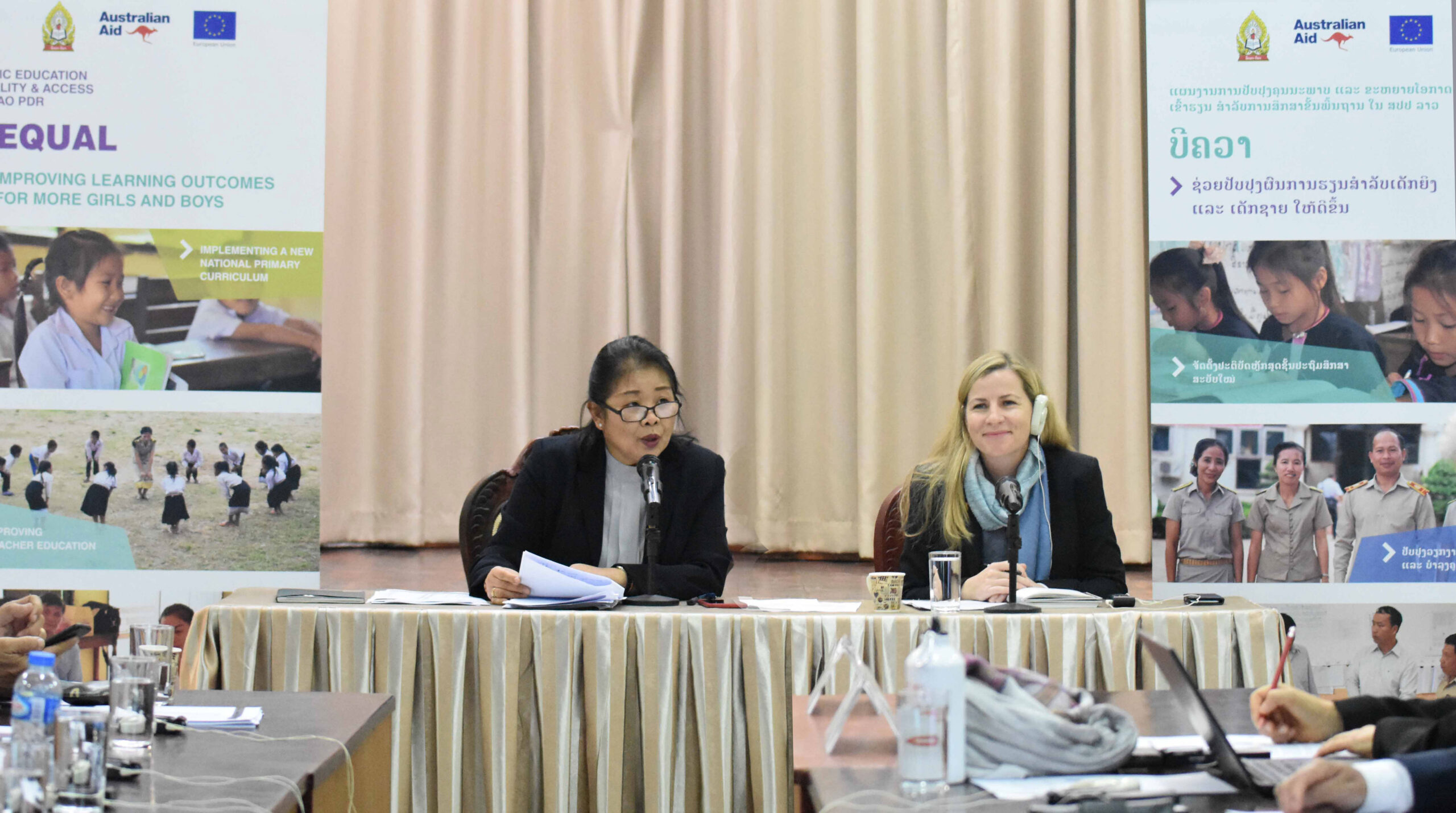
How can we encourage and pilot new and innovative activities to improve participation and access to primary education? How can we strengthen provincial, district, school and community capacity to manage, coordinate and implement those new education activities?
This is the strategy behind the BEQUAL Education Innovation Fund (BEIF) that was launched in 2016 by the Ministry of Education and Sports (MoES), with the support of the Australian Government and the European Union. The fund was established to encourage new thinking and explore new ways of working that can positively impact on both the quality of, and access to, primary- education for children in disadvantaged communities, with a special focus on girls, ethnic students and children with disabilities.
After a call for submission of innovative ideas, fifteen projects led by government agencies, NGOs and the private sector were awarded a grant pilot their proposed ideas and see if they are successful and suitable for scaling up and more widespread implementation. The grants ranged from 185,000,000 LAK to 924,725,000 LAK (AUD30,000 to AUD158,000) and were implemented over a period of 14 to 34 months.
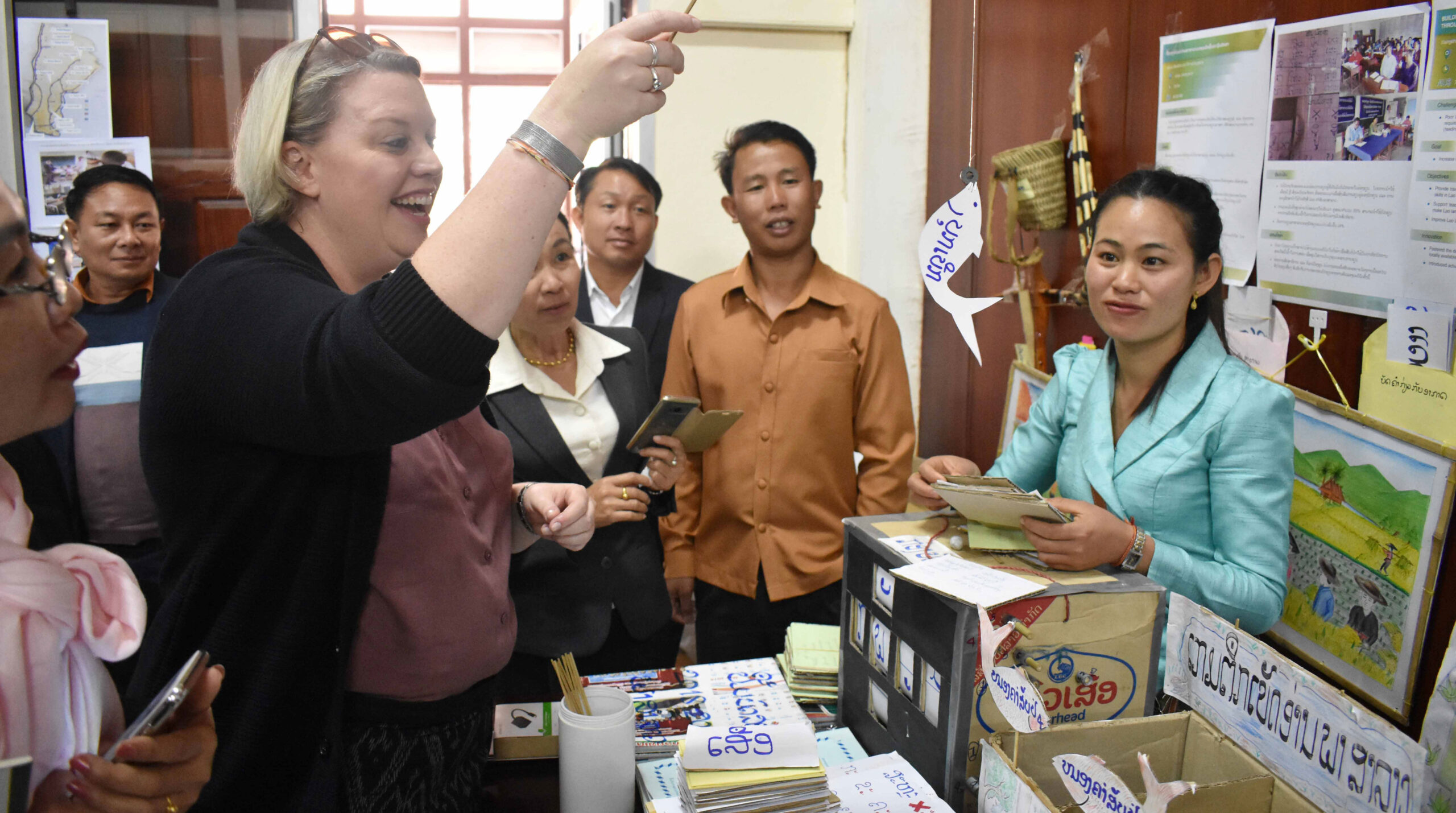

Today, the “BEIF Learning workshop” chaired by Madam Khampaseuth Kitignavong, Deputy Director General of the Department of Planning, MoES and co-chaired by Katie Smith, First Secretary, Australian Embassy, brings together 70 representatives from the awarded projects, including relevant MoES departments, Provincial Education and Sports Services, Teacher Training Colleges, District Education and Sports Bureaus, NGOs and other education partners. Four panel discussions will be facilitated on the themes of subject specific pedagogy, multi-grade teaching pedagogy, school management, and access and participation. The objective is to hear from project implementers about what worked and what didn’t, what were the challenges addressed, how the innovation was adopted and what were the motivators for change.
The participants will also be invited to visit the 15 projects’ displays presenting the broad range of innovations such as linking the mathematics curriculum to agriculture, developing active learning techniques for Lao Language lessons, creating engaging teaching and learning materials with local materials, implementing new teaching methods in multi-grade class settings, adopting lesson study and peer-learning for continuous professional development, introducing teachers to new inclusive education practices, and using edutainment to increase school attendance, to name a few. The participants will have the opportunity to discuss implementation, results, sustainability and cost effectiveness with each team. The idea is to learn from the pilots and identify which of the displayed innovative activities is relevant to contribute to better learning results and can be replicated. Some pilots have already been expanded, like the edutainment project which was adapted to support the new Grade 1 curriculum national implementation with the “Learn Together” educative program broadcasted on Lao National TV since August 2019.
Hopefully, the participants will be inspired today by the most successful innovations and other small-scale successes can be expanded and have a positive impact on more schools and children.
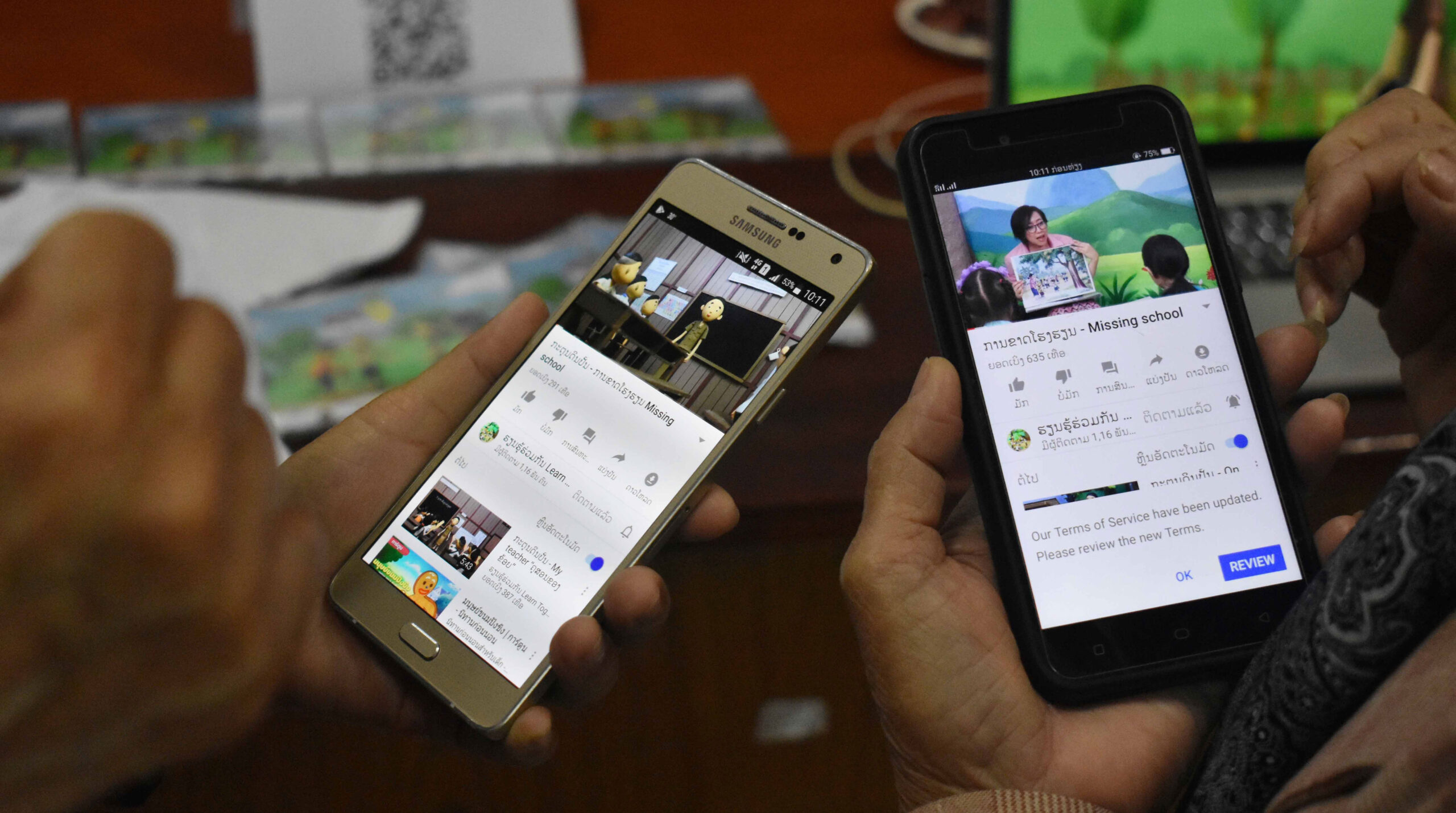
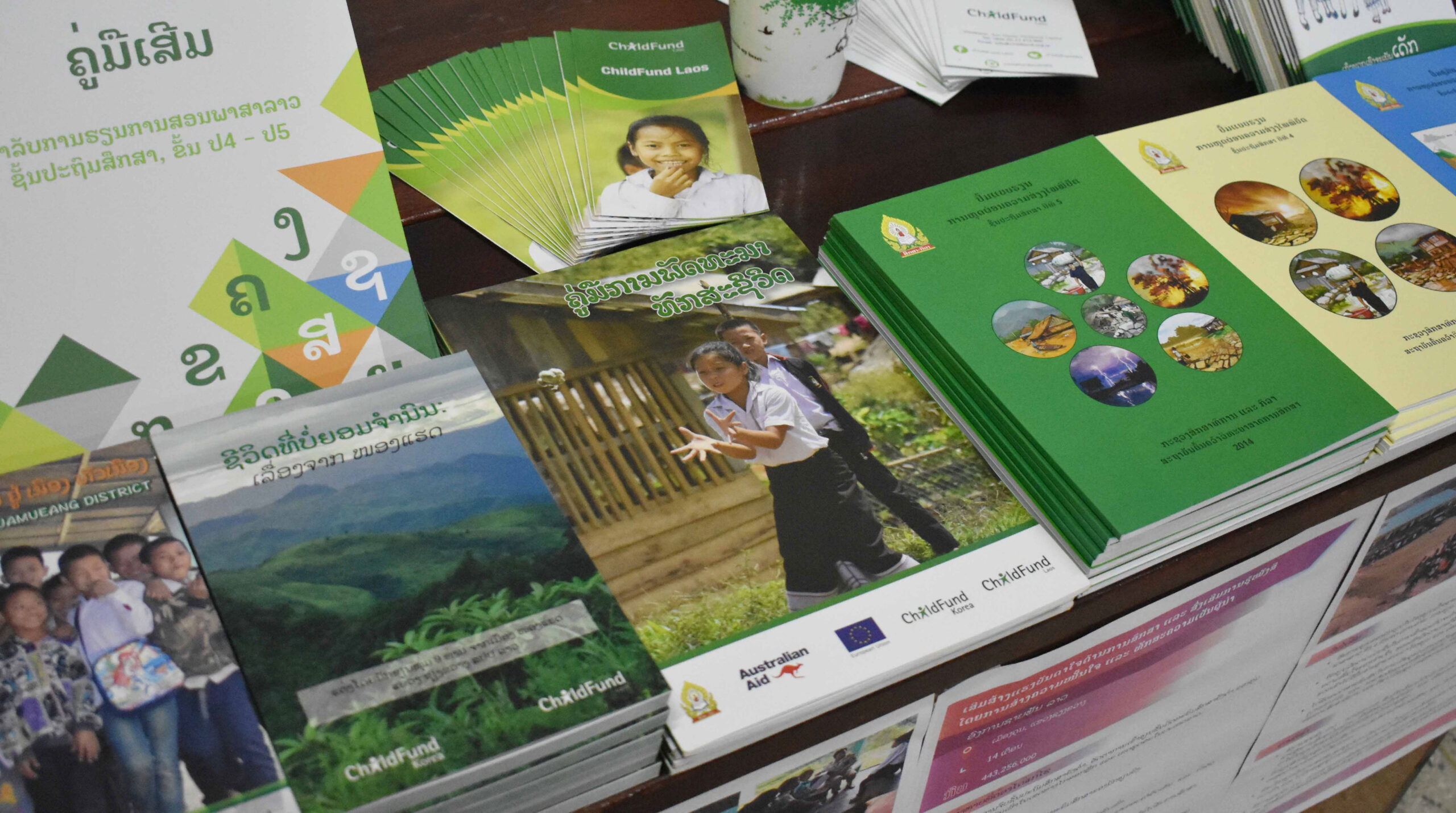
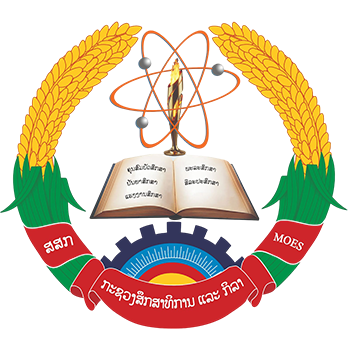


 ພາສາລາວ
ພາສາລາວ